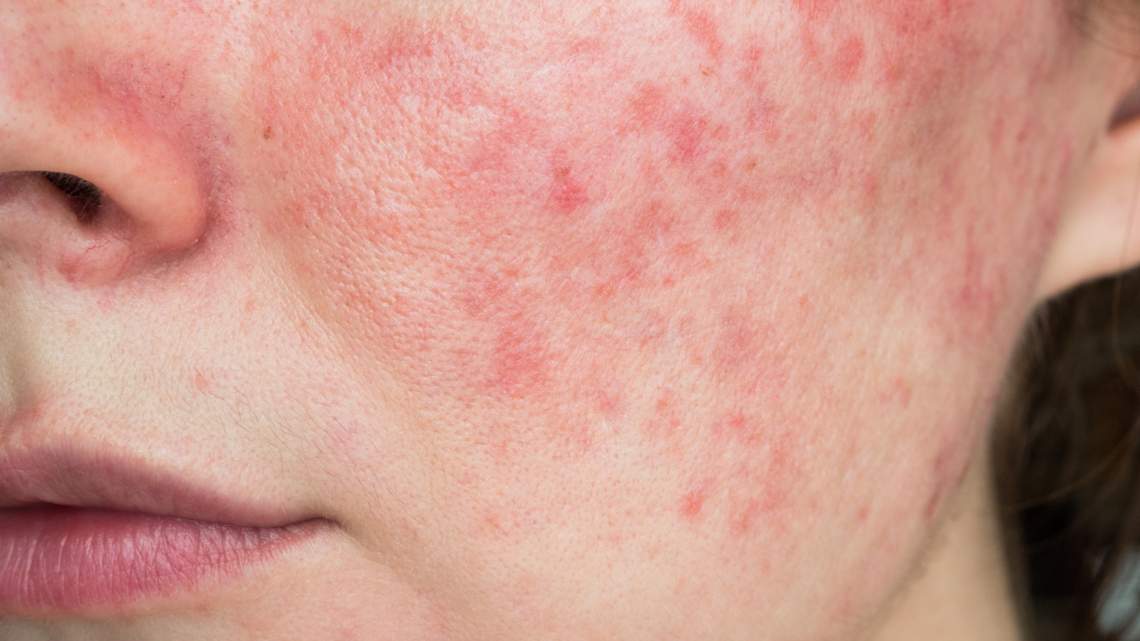-
Summer Water Safety
During the summer months, the allure of water-based activities becomes irresistibly captivating, drawing individuals and families alike to the myriad lakes, rivers, pools, and coastal areas. The significance of water safety cannot be overstated, especially given the inherent risks associated with swimming, boating, and other aquatic pursuits. Ensuring a safe and enjoyable summer necessitates a thorough understanding of water safety practices, vigilance in implementing precautionary measures, and a collective commitment to fostering a culture of safety and awareness within our communities.
The Importance of Water Safety Education
Water safety education serves as the foundational pillar upon which safe aquatic practices are built. By instilling a comprehensive understanding of potential hazards, risk factors, and preventive strategies, individuals can be better equipped to navigate water environments safely. This education must extend to all age groups, encompassing children, adolescents, and adults, and should be delivered through diverse channels such as schools, community programs, and public awareness campaigns. Emphasizing the critical importance of swimming lessons, life-saving skills, and water safety rules can significantly reduce the incidence of drowning and other water-related accidents.
Recognizing and Understanding Water Hazards
One of the primary steps in ensuring water safety is recognizing and understanding the various hazards that may be present in different aquatic environments. Natural bodies of water, such as lakes, rivers, and oceans, pose unique risks, including strong currents, tides, undertows, and sudden changes in water depth. These factors can create challenging and potentially dangerous conditions for swimmers and boaters. Additionally, environmental elements such as weather conditions, water temperature, and visibility can further influence safety. Awareness of these hazards and the ability to assess and respond to changing conditions are crucial for preventing accidents and ensuring a safe water experience.
 Safe Swimming Practices
Safe Swimming PracticesSwimming is one of the most popular and enjoyable summer activities, offering numerous physical and mental health benefits. However, it is essential to adhere to safe swimming practices to mitigate the risks associated with this activity. First and foremost, swimming should always take place in designated areas supervised by lifeguards. These areas are specifically chosen and monitored to ensure optimal safety conditions, including appropriate water depth, absence of hazardous objects, and clear visibility. Swimmers should never venture into unsupervised or restricted areas, as these locations may pose significant dangers.
When swimming in natural bodies of water, it is important to be mindful of potential hazards such as strong currents, sudden drop-offs, and underwater obstacles. Even experienced swimmers can find themselves in perilous situations if they are not vigilant. It is advisable to swim parallel to the shore rather than venturing too far out into open water, as this reduces the risk of being carried away by currents or encountering unforeseen hazards. Additionally, swimmers should avoid swimming alone, as having a buddy can provide mutual support and assistance in case of an emergency.
Another critical aspect of safe swimming practices is understanding and respecting personal limitations. Overestimating one’s swimming abilities can lead to dangerous situations, especially in challenging water conditions. It is essential to gauge one’s physical fitness, stamina, and skill level accurately and to avoid pushing beyond these limits. Parents and guardians should closely supervise children at all times, ensuring they stay within designated swimming areas and adhere to safety rules. Encouraging children to wear life jackets or flotation devices, particularly if they are not strong swimmers, can provide an added layer of protection.
Boating Safety: Navigating the Waters Responsibly
Boating is a quintessential summer activity that offers an exhilarating and immersive experience of Canada’s waterways. However, the enjoyment of boating must be balanced with a steadfast commitment to safety. Boating accidents can result in severe injuries and fatalities, often due to factors such as operator inexperience, excessive speed, alcohol consumption, and failure to adhere to safety regulations. To ensure a safe and enjoyable boating experience, it is imperative to follow established boating safety guidelines and best practices.
First and foremost, all boat operators should possess the necessary training and certification. In Canada, a Pleasure Craft Operator Card (PCOC) is required for anyone operating a motorized boat. This certification ensures that operators have received adequate training in essential boating skills, navigation rules, and safety procedures. Boaters should also familiarize themselves with the specific regulations and guidelines governing the waterway they intend to navigate, as these may vary depending on the location and type of watercraft.
The proper use of safety equipment is another crucial aspect of boating safety. Life jackets or personal flotation devices (PFDs) are indispensable and must be worn by all occupants of the boat. It is essential to ensure that life jackets are appropriately sized, properly fitted, and in good condition. Additionally, boats should be equipped with essential safety gear, including a first aid kit, fire extinguisher, signaling devices, and navigation lights. Regular maintenance and inspection of the boat and its equipment are vital to ensure everything is in optimal working condition.
Operating a boat under the influence of alcohol or drugs is extremely dangerous and is strictly prohibited by law. Alcohol impairs judgment, coordination, and reaction times, significantly increasing the risk of accidents. Boaters should designate a sober operator and encourage responsible behavior among all passengers. It is also important to be aware of weather conditions and forecasts before setting out on a boating trip. Sudden changes in weather, such as thunderstorms or high winds, can create hazardous conditions on the water. Boaters should exercise caution and be prepared to return to shore or seek shelter if adverse weather is anticipated.
Preventing Drowning Incidents
Drowning is one of the leading causes of unintentional injury-related deaths worldwide, with young children and males being particularly vulnerable. Preventing drowning incidents requires a multifaceted approach that includes education, supervision, environmental modifications, and emergency preparedness. By implementing comprehensive drowning prevention strategies, communities can significantly reduce the risk of drowning and save lives.
One of the most effective ways to prevent drowning is to ensure that individuals, especially children, receive proper swimming instruction and water safety education. Swimming lessons should be made accessible to all, with programs tailored to different age groups and skill levels. These lessons should cover essential swimming skills, such as floating, treading water, and basic strokes, as well as safety practices, including recognizing and avoiding hazards, and responding to emergencies.
Constant and vigilant supervision is critical, particularly when young children are near water. Adults should maintain close proximity to children and provide undivided attention when they are in or around water. Designating a responsible adult as a “water watcher” can help ensure that supervision is focused and continuous. Additionally, the installation of physical barriers, such as pool fences with self-latching gates, can prevent unsupervised access to swimming pools and other water features. These barriers should be designed to meet safety standards and should be regularly inspected and maintained.
Emergency preparedness is another key component of drowning prevention. Individuals should be trained in cardiopulmonary resuscitation (CPR) and first aid, as prompt and effective response can be lifesaving in drowning incidents. Knowing how to perform CPR and administer first aid can enable bystanders to provide critical assistance while waiting for professional medical help to arrive. Furthermore, having access to emergency communication devices, such as mobile phones or emergency call boxes, can facilitate rapid response in case of an emergency.
Waterborne Illnesses and Health Considerations
While water-based activities offer numerous benefits, they also present potential health risks, particularly in terms of waterborne illnesses. Waterborne pathogens, including bacteria, viruses, and parasites, can contaminate natural and recreational water sources, leading to various illnesses. These illnesses can range from mild gastrointestinal infections to more severe conditions, such as hepatitis or leptospirosis. Understanding the risks associated with waterborne illnesses and adopting preventive measures can help ensure a safe and healthy water experience.
One of the primary sources of waterborne illnesses is the ingestion or inhalation of contaminated water. This can occur in natural bodies of water, such as lakes, rivers, and oceans, as well as in swimming pools and hot tubs. To minimize the risk of exposure, individuals should avoid swallowing water while swimming and should keep their mouths closed when submerging their heads. It is also advisable to shower before and after swimming to reduce the presence of contaminants on the skin.
Swimming pools and hot tubs should be properly maintained and treated with appropriate chemicals to ensure safe water quality. Regular testing and monitoring of chlorine and pH levels can help prevent the growth of harmful microorganisms. Additionally, pool operators should adhere to recommended guidelines for water treatment and filtration to maintain a clean and safe swimming environment. Swimmers should avoid using pools or hot tubs that appear cloudy or have an unpleasant odour, as these may indicate inadequate water treatment.
Natural bodies of water can be affected by environmental factors such as pollution, runoff, and algal blooms, which can introduce harmful pathogens and toxins. It is important to stay informed about water quality advisories and avoid swimming in areas with known contamination issues. In some cases, waterborne illnesses can also be contracted through skin contact, particularly if there are open wounds or cuts. Wearing protective clothing, such as water shoes and wetsuits, can provide a barrier against potential contaminants.
Water Safety for Children: Ensuring a Safe and Fun Experience
Children are naturally drawn to water, and their enthusiasm for swimming and water play can make summer a season of joy and adventure. However, ensuring the safety of children in and around water requires heightened vigilance, proactive measures, and a focus on education. By creating a safe environment and fostering a culture of water safety, parents and caregivers can help children enjoy water activities while minimizing the risks.
Teaching children about water safety from an early age is essential. Water safety education should be age-appropriate and engaging, using games, songs, and interactive activities to convey important messages. Children should learn basic water safety rules, such as never swimming alone, always swimming with a buddy, and staying within designated swimming areas. They should also be taught to recognize and respond to emergency situations, including calling for help and understanding the role of lifeguards.
Supervision is paramount when it comes to children’s water safety. Parents and caregivers should maintain constant visual contact with children and remain within arm’s reach, especially for young or inexperienced swimmers. Distractions, such as reading, using mobile devices, or socializing, should be avoided while supervising children in or near water. The use of life jackets or flotation devices can provide an additional layer of protection, particularly for children who are not strong swimmers. These devices should be properly fitted and meet safety standards.
Creating a safe physical environment is also crucial for children’s water safety. Home swimming pools should be surrounded by a fence with a self-closing and self-latching gate to prevent unsupervised access. Pool alarms and covers can provide additional security measures. It is important to ensure that children are familiar with the pool rules and understand the importance of not running, diving in shallow areas, or engaging in rough play.
-
Healthy Summer Grilling Guide
Welcome to the much-anticipated summer BBQ season, a time of year that brings about a sense of excitement and joy as the days get longer, the weather becomes warmer, and the grills are fired up, creating an atmosphere of fun and camaraderie among friends and family. This season is synonymous with outdoor gatherings where the delicious aroma of grilled food fills the air, enticing everyone to indulge in a feast. However, it’s no secret that BBQs are often associated with heavy, calorie-laden dishes that can leave you feeling sluggish and guilty. The good news is that this doesn’t have to be the case. With some mindful choices, a bit of creativity in the kitchen, and a focus on wholesome ingredients, you can transform your BBQ experience into a delightful and health-conscious event that leaves you feeling satisfied and energized.
In this comprehensive guide, we will delve into a plethora of ways to make your summer BBQs not only delicious but also nutritious, ensuring that every bite is as good for your body as it is for your taste buds. From selecting lean proteins that provide the essential nutrients without the excess fat to incorporating vibrant vegetables that add color, flavor, and a boost of vitamins and minerals, we will cover every aspect of creating a balanced and healthful BBQ menu. Additionally, we’ll explore how to craft smart side dishes that complement your main courses without adding unnecessary calories, as well as delightful desserts that offer a sweet finish to your meal without compromising your health goals. Let’s embark on this culinary journey together and discover the myriad ways to enjoy the best of both worlds—flavor and health—at your summer BBQs.
Choosing Healthy Proteins
One of the cornerstones of a great BBQ is the protein, and while traditional BBQs often feature fatty cuts of meat that can contribute to an overindulgence in calories and unhealthy fats, there are plenty of healthier options that can be just as satisfying, if not more so. Selecting the right proteins can make a significant difference in the overall healthfulness of your BBQ spread, and with a variety of choices available, you can cater to a wide range of tastes and dietary preferences. Here are some top choices for lean and nutritious proteins that should be considered staples in your summer BBQ menu.
 Lean Meats
Lean MeatsChicken Breast: Chicken breast is an incredibly versatile and lean source of protein that can be easily transformed into a flavorful and satisfying dish with the right marinades and cooking techniques. Whether you prefer it grilled whole, sliced into strips for skewers, or diced for salads, chicken breast offers a blank canvas that can be infused with a variety of herbs, spices, and marinades to suit your taste. A simple marinade made with olive oil, lemon juice, garlic, and a mix of fresh herbs like rosemary, thyme, and oregano can elevate the natural flavor of the chicken while keeping it moist and tender on the grill. Additionally, chicken breast is an excellent source of high-quality protein, which is essential for muscle maintenance and repair, making it a great choice for those who are mindful of their fitness goals.
Turkey: Turkey is another fantastic option for a lean protein that can be enjoyed in various forms at your BBQ. Turkey burgers, for example, can be a delicious and healthier alternative to traditional beef burgers. To keep them juicy and flavorful, consider mixing ground turkey with finely chopped onions, garlic, fresh herbs, and a splash of Worcestershire sauce before forming them into patties. Grilled turkey tenderloins, seasoned with a blend of paprika, cumin, and a touch of cayenne pepper, can also be a hit, offering a smoky and slightly spicy flavor that pairs perfectly with a variety of grilled vegetables. Like chicken, turkey is low in fat and high in protein, making it an excellent choice for those looking to enjoy a hearty meal without the extra calories.
Lean Beef: While beef is often associated with higher fat content, there are lean cuts available that can be enjoyed as part of a healthy BBQ. Look for cuts like sirloin, tenderloin, or flank steak, which are lower in fat but still offer that rich, beefy flavor that many BBQ enthusiasts crave. Marinating these cuts in a mixture of balsamic vinegar, soy sauce, garlic, and a touch of honey can help tenderize the meat and add a depth of flavor that is sure to impress your guests. When grilling lean beef, it’s important to cook it to the right temperature to ensure it remains tender and juicy. Using a meat thermometer can help achieve the perfect doneness, ensuring that your lean beef dishes are both flavorful and healthful.
Seafood Options
Salmon: Salmon is an exceptional choice for a healthy BBQ protein, offering a wealth of nutrients along with its rich and satisfying flavor. This oily fish is packed with omega-3 fatty acids, which are known for their heart-healthy benefits and anti-inflammatory properties. Grilling salmon can be a simple yet impressive addition to your BBQ menu. Consider marinating the salmon in a mixture of olive oil, lemon zest, dill, and a touch of Dijon mustard before grilling it over medium-high heat until it is just cooked through and the skin is crispy. The natural oils in the salmon help keep it moist and flavorful, making it a crowd-pleaser that is also incredibly nutritious.
Shrimp: Shrimp is another excellent seafood option for your BBQ, offering a lean source of protein that cooks quickly and can be seasoned in a variety of ways. Shrimp skewers, marinated in a blend of lime juice, garlic, cilantro, and a hint of chili powder, can be grilled to perfection in just a few minutes, making them a convenient and tasty addition to your BBQ spread. Shrimp is not only low in fat but also provides essential nutrients like selenium and vitamin B12, making it a great choice for those looking to enjoy a light and healthy meal. Additionally, shrimp can be paired with a variety of grilled vegetables and whole grains to create a balanced and nutritious dish that is sure to satisfy.
Tuna: Grilled tuna steaks can be a fantastic centerpiece for a healthy BBQ, offering a meaty and flavorful alternative to traditional meat dishes. Tuna is rich in protein and omega-3 fatty acids, making it a nutritious choice that is also incredibly delicious. For a simple yet flavorful preparation, consider marinating tuna steaks in a mixture of soy sauce, ginger, garlic, and a touch of sesame oil before grilling them over high heat for just a few minutes on each side. The result is a beautifully seared exterior with a tender and juicy interior that pairs perfectly with a fresh salad or grilled vegetables.
Plant-Based Proteins
Tofu: Tofu is a versatile and nutritious plant-based protein that can be a fantastic addition to your BBQ menu, especially for those who follow a vegetarian or vegan diet. Firm tofu can be marinated in a variety of flavorful sauces and grilled to achieve a crispy exterior and a tender interior. A marinade made with soy sauce, rice vinegar, garlic, and a touch of sriracha can infuse the tofu with a delicious umami flavor that is sure to impress even the most dedicated meat eaters. Tofu is not only a great source of protein but also provides essential nutrients like iron and calcium, making it a healthy and satisfying option for your BBQ.
Tempeh: Tempeh is another excellent plant-based protein that offers a firm texture and a slightly nutty flavor, making it a great choice for grilling. Tempeh can be sliced into strips or cubes and marinated in a variety of sauces to enhance its flavor. Consider a marinade made with tamari, maple syrup, garlic, and smoked paprika for a sweet and smoky taste that pairs perfectly with grilled vegetables and whole grains. Tempeh is not only rich in protein but also provides probiotics and a range of essential nutrients, making it a nutritious addition to your BBQ spread.
Legumes: Legume-based dishes can be a hearty and nutritious addition to your BBQ menu, offering a plant-based protein source that is both filling and flavorful. Consider making a grilled chickpea and vegetable salad, combining chickpeas with bell peppers, zucchini, cherry tomatoes, and a tangy lemon-tahini dressing. This dish can be served warm or cold, making it a versatile option for any BBQ. Additionally, black bean burgers can be a delicious and satisfying alternative to traditional beef burgers. Mix cooked black beans with finely chopped onions, garlic, cilantro, and a blend of spices before forming them into patties and grilling them until crispy on the outside and tender on the inside. Legumes are not only rich in protein but also provide a good source of fiber, vitamins, and minerals, making them a healthy and delicious choice for your BBQ.
 Grilling Techniques for Preserving Nutrients
Grilling Techniques for Preserving NutrientsTo ensure that your healthy proteins retain their nutritional value and flavor, it’s important to use proper grilling techniques. Here are some tips to help you get the most out of your BBQ:
- Preheat the Grill: Always preheat your grill to the appropriate temperature before adding your food. This helps to create a good sear on the outside while keeping the inside tender and juicy.
- Marinate Wisely: Marinating your proteins not only adds flavor but can also help to reduce the formation of harmful compounds that can occur during grilling. Use marinades that are rich in antioxidants, such as those containing herbs, citrus, and olive oil.
- Avoid Overcooking: Overcooking can lead to a loss of nutrients and a dry, unappetizing texture. Use a meat thermometer to ensure that your proteins are cooked to the appropriate temperature without overdoing it.
- Use Indirect Heat for Larger Cuts: For larger cuts of meat, such as whole chicken or turkey breast, use indirect heat to cook them slowly and evenly. This helps to retain moisture and prevent charring on the outside while ensuring that the inside is cooked through.
By choosing lean and nutritious proteins and employing proper grilling techniques, you can create a BBQ menu that is both delicious and healthful, satisfying your cravings while supporting your health goals.
Vegetable Dishes
Vegetables play a crucial role in creating a balanced and nutritious BBQ menu, offering a burst of color, flavor, and a wealth of vitamins and minerals that are essential for overall health. Incorporating a variety of vegetables into your BBQ not only enhances the visual appeal of your spread but also provides an array of health benefits that can help you feel your best. Here are some ideas for delicious and healthy vegetable dishes that will be the stars of your summer BBQ.
Grilled Vegetable Skewers
Grilled vegetable skewers are a classic BBQ staple that can be customized to suit any taste. They are easy to prepare, cook quickly, and can be seasoned in a variety of ways to create a delicious and nutritious side dish. Some great vegetables to include on your skewers are bell peppers, zucchini, cherry tomatoes, mushrooms, and red onions. To prepare the skewers, simply chop the vegetables into uniform pieces, thread them onto skewers, and brush them with a marinade made from olive oil, balsamic vinegar, garlic, and your favorite herbs and spices. Grill the skewers over medium-high heat, turning occasionally, until the vegetables are tender and slightly charred. This dish is not only visually appealing but also packed with vitamins, minerals, and antioxidants that support overall health.
 Salad Recipes
Salad RecipesSalads are a refreshing and versatile addition to any BBQ, offering a light and nutritious option that can be easily customized to suit your preferences. Here are some ideas for healthy and delicious salads that are perfect for your summer BBQ.
Mixed Greens Salad: A simple mixed greens salad can be elevated with the addition of fresh, seasonal ingredients. Consider combining a mix of baby spinach, arugula, and romaine lettuce with sliced cucumbers, cherry tomatoes, radishes, and avocado. Toss the salad with a light vinaigrette made from olive oil, lemon juice, Dijon mustard, and a touch of honey for a refreshing and nutritious side dish.
Quinoa Salad: Quinoa is a nutrient-dense whole grain that makes a fantastic base for a hearty and healthy salad. Combine cooked quinoa with diced bell peppers, cherry tomatoes, red onions, cucumbers, and fresh herbs like parsley and mint. Dress the salad with a lemon-tahini dressing made from tahini, lemon juice, garlic, and a touch of maple syrup for a delicious and satisfying dish that is packed with protein, fiber, and essential nutrients.
Bean Salad: Bean salads are a great way to incorporate plant-based protein into your BBQ menu. Consider making a three-bean salad with a mix of kidney beans, chickpeas, and green beans. Add diced red onions, bell peppers, and cherry tomatoes, and toss with a tangy dressing made from apple cider vinegar, olive oil, Dijon mustard, and a touch of honey. This salad is not only delicious but also provides a good source of protein, fiber, and a range of vitamins and minerals.
Creative Uses of Vegetables
Vegetables can be used in a variety of creative ways to create delicious and nutritious dishes that go beyond the traditional salad or skewer. Here are some ideas for incorporating vegetables into your BBQ in unique and flavorful ways.
Cauliflower Steaks: Cauliflower steaks are a fantastic plant-based alternative to traditional meat dishes, offering a hearty and satisfying option that is packed with nutrients. To prepare cauliflower steaks, simply slice a head of cauliflower into thick slices, brush with olive oil, and season with a blend of spices like smoked paprika, garlic powder, and cumin. Grill the cauliflower steaks over medium-high heat until they are tender and slightly charred, and serve with a drizzle of tahini sauce or a squeeze of lemon juice for added flavor.
Portobello Mushrooms: Portobello mushrooms are a great substitute for meat, offering a rich and meaty texture that is perfect for grilling. Marinate the mushrooms in a mixture of balsamic vinegar, olive oil, garlic, and fresh herbs before grilling them over medium-high heat until they are tender and slightly charred. Serve the grilled mushrooms as a main dish or slice them and add them to salads, sandwiches, or wraps for a delicious and nutritious option.
Stuffed Peppers: Stuffed peppers are a versatile and flavorful dish that can be customized with a variety of fillings to suit your taste. Consider stuffing bell peppers with a mixture of quinoa, black beans, corn, diced tomatoes, and a blend of spices like cumin, chili powder, and paprika. Top the peppers with a sprinkle of cheese or a dollop of guacamole before grilling them over medium heat until they are tender and the filling is heated through. This dish is not only delicious but also provides a good source of protein, fiber, and a range of essential nutrients.
Tips for Seasoning and Flavoring Vegetables
Proper seasoning and flavoring can elevate the taste of your vegetables and make them the star of your BBQ. Here are some tips for adding flavor to your grilled vegetables:
- Use Fresh Herbs: Fresh herbs like rosemary, thyme, basil, and cilantro can add a burst of flavor to your vegetables. Consider making a herb marinade with olive oil, garlic, and a mix of fresh herbs to brush onto your vegetables before grilling.
- Experiment with Spices: Spices like smoked paprika, cumin, chili powder, and turmeric can add depth and complexity to your vegetables. Try creating spice blends to season your vegetables before grilling for a unique and flavorful twist.
- Incorporate Citrus: Citrus fruits like lemon, lime, and orange can add a refreshing and tangy flavor to your vegetables. Consider adding a squeeze of citrus juice or a zest of citrus peel to your marinades and dressings for a bright and vibrant taste.
- Use Healthy Fats: Healthy fats like olive oil and avocado oil can help enhance the flavor of your vegetables while also providing essential nutrients. Use these oils in your marinades and dressings to add richness and depth to your dishes.
By incorporating a variety of vegetables into your BBQ menu and using proper seasoning and flavoring techniques, you can create delicious and nutritious dishes that are sure to impress your guests and support your health goals.
Healthy Sides
No BBQ is complete without a selection of delicious and satisfying side dishes that complement the main courses and add variety to the spread. While traditional BBQ sides like potato salad and coleslaw can be heavy and calorie-laden, there are plenty of healthier alternatives that are just as tasty and more nutritious. Here are some ideas for healthy sides that will round out your BBQ menu and leave your guests feeling satisfied and energized.
Whole Grain Options
Whole grains are a great addition to your BBQ menu, offering a hearty and nutritious option that is rich in fiber, vitamins, and minerals. Here are some ideas for incorporating whole grains into your BBQ spread:
Brown Rice: Brown rice is a versatile and nutritious whole grain that can be used as a base for a variety of dishes. Consider making a brown rice salad with diced bell peppers, corn, black beans, and a lime-cilantro dressing for a refreshing and satisfying side dish. Alternatively, serve brown rice alongside grilled proteins and vegetables for a simple and nutritious option.
Quinoa: Quinoa is a nutrient-dense whole grain that is perfect for salads and side dishes. Consider making a quinoa and vegetable salad with diced cucumbers, cherry tomatoes, red onions, and a lemon-tahini dressing for a delicious and satisfying side dish. Quinoa is not only rich in protein but also provides a good source of fiber and essential nutrients, making it a great addition to your BBQ menu.
Barley: Barley is a hearty and nutritious whole grain that can add a chewy texture and nutty flavor to your dishes. Consider making a barley salad with roasted vegetables, fresh herbs, and a tangy vinaigrette for a delicious and satisfying side dish. Barley is rich in fiber and provides a good source of vitamins and minerals, making it a healthy and delicious option for your BBQ.
Healthy Potato Alternatives
While traditional potato dishes can be heavy and calorie-laden, there are plenty of healthier alternatives that are just as delicious and more nutritious. Here are some ideas for incorporating healthy potato alternatives into your BBQ menu:
Sweet Potato Fries: Sweet potato fries are a delicious and nutritious alternative to traditional french fries, offering a sweet and savory flavor that pairs perfectly with grilled proteins and vegetables. To make sweet potato fries, simply slice sweet potatoes into thin strips, toss with olive oil and your favorite seasonings, and bake in the oven or grill until crispy and golden brown. Sweet potatoes are rich in vitamins A and C, fiber, and antioxidants, making them a healthy and satisfying option for your BBQ.
Baked Sweet Potatoes: Baked sweet potatoes are another great alternative to traditional potato dishes, offering a sweet and creamy texture that is perfect for pairing with a variety of toppings. Consider baking sweet potatoes until tender, then topping them with a mixture of black beans, corn, diced tomatoes, and a sprinkle of cheese or a dollop of guacamole for a delicious and satisfying side dish. Baked sweet potatoes are rich in fiber, vitamins, and minerals, making them a nutritious and delicious option for your BBQ.
Cauliflower Mash: Cauliflower mash is a low-carb and nutritious alternative to traditional mashed potatoes, offering a creamy and flavorful side dish that is perfect for pairing with grilled proteins and vegetables. To make cauliflower mash, simply steam or boil cauliflower until tender, then blend with a touch of olive oil, garlic, and your favorite seasonings until smooth and creamy. Cauliflower is rich in vitamins, minerals, and antioxidants, making it a healthy and delicious option for your BBQ.
 Light Dips and Spreads
Light Dips and SpreadsDips and spreads are a great addition to any BBQ, offering a flavorful and satisfying option for pairing with vegetables, whole grain crackers, and grilled proteins. Here are some ideas for healthy dips and spreads that will add a burst of flavor to your BBQ menu:
Hummus: Hummus is a delicious and nutritious dip made from chickpeas, tahini, olive oil, garlic, and lemon juice. It is rich in protein, fiber, and healthy fats, making it a great addition to your BBQ spread. Consider making a variety of hummus flavors, such as roasted red pepper, garlic, or avocado, to add variety and flavor to your menu. Serve hummus with a selection of fresh vegetables, whole grain crackers, or grilled pita bread for a delicious and satisfying option.
Guacamole: Guacamole is a creamy and flavorful dip made from mashed avocados, lime juice, garlic, and fresh herbs. It is rich in healthy fats, fiber, and essential nutrients, making it a nutritious and delicious addition to your BBQ menu. Consider adding diced tomatoes, red onions, and a touch of jalapeno to your guacamole for added flavor and texture. Serve guacamole with a selection of fresh vegetables, whole grain chips, or grilled proteins for a delicious and satisfying option.
Yogurt-Based Dips: Yogurt-based dips are a light and nutritious alternative to traditional creamy dips, offering a refreshing and flavorful option that is perfect for pairing with vegetables and grilled proteins. Consider making a tzatziki dip with Greek yogurt, cucumber, garlic, and fresh dill for a delicious and satisfying option. Greek yogurt is rich in protein and probiotics, making it a healthy and delicious addition to your BBQ spread. Serve yogurt-based dips with a selection of fresh vegetables, whole grain crackers, or grilled proteins for a delicious and satisfying option.
By incorporating a variety of healthy sides into your BBQ menu, you can create a balanced and nutritious spread that complements your main courses and leaves your guests feeling satisfied and energized.
Smart BBQ Sauces and Marinades
Sauces and marinades play a crucial role in enhancing the flavor of your BBQ dishes, adding depth and complexity to your grilled proteins and vegetables. However, many store-bought sauces and marinades are loaded with added sugars, sodium, and unhealthy fats, which can detract from the overall healthfulness of your BBQ spread. By making your own sauces and marinades at home, you can control the ingredients and create delicious and nutritious options that enhance the flavor of your dishes without compromising your health goals. Here are some ideas for smart BBQ sauces and marinades that will add flavor to your menu while keeping it healthy.
Making Your Own Healthy Sauces
Making your own sauces at home allows you to control the ingredients and create flavorful options that are free from added sugars, sodium, and unhealthy fats. Here are some ideas for homemade BBQ sauces that are both delicious and nutritious:
Tomato-Based BBQ Sauce: A classic tomato-based BBQ sauce can be made healthier by using fresh tomatoes or no-sugar-added tomato sauce as the base. Combine the tomatoes with apple cider vinegar, a touch of honey or maple syrup, garlic, onion, and a blend of spices like smoked paprika, cumin, and black pepper. Simmer the mixture until it thickens and the flavors meld together, creating a rich and tangy sauce that is perfect for brushing onto grilled proteins and vegetables.
Mustard-Based BBQ Sauce: Mustard-based BBQ sauces offer a tangy and flavorful alternative to traditional tomato-based sauces. To make a healthy mustard-based BBQ sauce, combine whole grain mustard with apple cider vinegar, honey, garlic, and a touch of olive oil. Add a blend of spices like turmeric, smoked paprika, and black pepper to enhance the flavor. Simmer the mixture until it thickens and the flavors meld together, creating a tangy and delicious sauce that is perfect for pairing with grilled chicken, pork, or vegetables.
Fruit-Based BBQ Sauce: Fruit-based BBQ sauces offer a sweet and tangy flavor that pairs perfectly with grilled proteins and vegetables. To make a healthy fruit-based BBQ sauce, combine fresh or frozen fruit like peaches, mangoes, or pineapple with apple cider vinegar, honey or maple syrup, garlic, and a touch of olive oil. Add a blend of spices like cinnamon, cloves, and ginger to enhance the flavor. Simmer the mixture until it thickens and the flavors meld together, creating a sweet and tangy sauce that is perfect for brushing onto grilled proteins and vegetables.
Reducing Sugar and Sodium in Store-Bought Options
If you prefer to use store-bought sauces and marinades, there are ways to make them healthier by reducing the sugar and sodium content. Here are some tips for choosing healthier store-bought options:
- Read the Labels: Look for sauces and marinades that are free from added sugars and have a low sodium content. Check the ingredient list for natural and whole food ingredients, and avoid options that contain high fructose corn syrup, artificial sweeteners, and preservatives.
- Dilute with Water or Broth: If you have a favorite store-bought sauce or marinade that is high in sodium or sugar, consider diluting it with water or low-sodium broth to reduce the overall content. This can help to cut down on the unhealthy ingredients while still adding flavor to your dishes.
- Add Fresh Ingredients: Enhance the flavor of store-bought sauces and marinades by adding fresh ingredients like garlic, onions, herbs, and spices. This can help to reduce the reliance on added sugars and sodium for flavor, creating a healthier and more flavorful option.
Marinade Recipes That Enhance Flavor Without Excess Calories
Marinades are a great way to add flavor to your grilled proteins and vegetables without adding excess calories. Here are some ideas for healthy and flavorful marinades that will enhance your BBQ dishes:
Citrus-Herb Marinade: Combine fresh lemon or lime juice with olive oil, garlic, and a blend of fresh herbs like rosemary, thyme, and parsley. This marinade is perfect for chicken, seafood, and vegetables, adding a bright and refreshing flavor that is light and healthy.
Balsamic-Vinegar Marinade: Combine balsamic vinegar with olive oil, garlic, and a touch of honey or maple syrup. Add a blend of spices like black pepper, smoked paprika, and oregano to enhance the flavor. This marinade is perfect for beef, pork, and vegetables, adding a rich and tangy flavor that is both delicious and nutritious.
Spicy-Tamarind Marinade: Combine tamarind paste with lime juice, garlic, and a touch of honey or maple syrup. Add a blend of spices like chili powder, cumin, and coriander to enhance the flavor. This marinade is perfect for chicken, seafood, and vegetables, adding a spicy and tangy flavor that is both unique and delicious.
By making your own sauces and marinades at home or choosing healthier store-bought options, you can enhance the flavor of your BBQ dishes while keeping them nutritious and healthful.
Delicious and Healthy Drinks
No BBQ is complete without a selection of refreshing and delicious drinks that can keep your guests hydrated and satisfied. While traditional BBQ drinks like sugary sodas and alcoholic beverages can be high in calories and unhealthy ingredients, there are plenty of healthier alternatives that are just as enjoyable. Here are some ideas for delicious and healthy drinks that will complement your BBQ menu and keep your guests feeling refreshed and hydrated.
Infused Water Recipes
Infused water is a refreshing and healthy alternative to sugary drinks, offering a burst of flavor without the added calories. Here are some ideas for infused water recipes that are perfect for your summer BBQ:
Cucumber-Mint Water: Combine sliced cucumber with fresh mint leaves and cold water. Let the mixture infuse for at least an hour before serving. The cucumber adds a refreshing and hydrating element, while the mint adds a burst of flavor that is both cooling and invigorating.
Lemon-Lime Water: Combine sliced lemon and lime with cold water. Let the mixture infuse for at least an hour before serving. The citrus adds a bright and tangy flavor that is both refreshing and hydrating, perfect for a hot summer day.
Berry-Basil Water: Combine fresh berries like strawberries, blueberries, and raspberries with fresh basil leaves and cold water. Let the mixture infuse for at least an hour before serving. The berries add a sweet and fruity flavor, while the basil adds a unique and aromatic element that is both refreshing and delicious.
Low-Sugar Iced Tea and Lemonade Options
Iced tea and lemonade are classic BBQ drinks, but they can often be loaded with added sugars. Here are some ideas for low-sugar versions that are just as delicious and more nutritious:
Iced Green Tea: Brew green tea and let it cool before serving over ice. Add a touch of honey or a few drops of stevia for sweetness if desired. Green tea is rich in antioxidants and offers a refreshing and hydrating option for your BBQ.
Herbal Iced Tea: Brew your favorite herbal tea, such as chamomile, peppermint, or hibiscus, and let it cool before serving over ice. Add a touch of honey or a few drops of stevia for sweetness if desired. Herbal teas offer a range of flavors and health benefits, making them a great addition to your BBQ menu.
Low-Sugar Lemonade: Combine fresh lemon juice with cold water and a touch of honey or a few drops of stevia for sweetness. Add a few slices of lemon for garnish and serve over ice. This low-sugar lemonade offers a bright and refreshing flavor without the added calories, making it a perfect drink for a hot summer day.
By incorporating a variety of healthy and refreshing drink options into your BBQ menu, you can keep your guests hydrated and satisfied while supporting your health goals.
Healthy Desserts
No BBQ is complete without a selection of delicious and satisfying desserts that offer a sweet finish to your meal. While traditional BBQ desserts like cakes and pies can be heavy and calorie-laden, there are plenty of healthier alternatives that are just as delicious and more nutritious. Here are some ideas for healthy desserts that will add a sweet and satisfying end to your BBQ menu.
Grilled Fruits
Grilled fruits offer a sweet and delicious dessert option that is both healthy and satisfying. Here are some ideas for grilled fruits that are perfect for your summer BBQ:
Grilled Pineapple: Slice fresh pineapple into rings or wedges and grill over medium-high heat until caramelized and slightly charred. Serve the grilled pineapple with a drizzle of honey or a sprinkle of cinnamon for added flavor. Pineapple is rich in vitamins, minerals, and antioxidants, making it a healthy and delicious dessert option.
Grilled Peaches: Slice fresh peaches in half and remove the pit. Grill the peach halves over medium-high heat until caramelized and slightly charred. Serve the grilled peaches with a dollop of Greek yogurt and a drizzle of honey for added flavor. Peaches are rich in vitamins and antioxidants, making them a healthy and delicious dessert option.
Grilled Watermelon: Slice fresh watermelon into wedges and grill over medium-high heat until caramelized and slightly charred. Serve the grilled watermelon with a sprinkle of sea salt and a squeeze of lime juice for added flavor. Watermelon is hydrating and rich in vitamins and antioxidants, making it a healthy and delicious dessert option.
Yogurt-Based Desserts
Yogurt-based desserts offer a creamy and satisfying option that is both healthy and delicious. Here are some ideas for yogurt-based desserts that are perfect for your summer BBQ:
Frozen Yogurt: Make your own frozen yogurt by blending Greek yogurt with fresh fruit like berries, mangoes, or peaches. Freeze the mixture until firm and serve with a sprinkle of granola or a drizzle of honey for added flavor. Frozen yogurt is rich in protein and probiotics, making it a healthy and delicious dessert option.
Yogurt Parfaits: Layer Greek yogurt with fresh fruit, granola, and a drizzle of honey to create a delicious and satisfying yogurt parfait. This dessert is not only visually appealing but also packed with protein, fiber, and essential nutrients, making it a healthy and delicious option for your BBQ.
Yogurt Popsicles: Make your own yogurt popsicles by blending Greek yogurt with fresh fruit and a touch of honey or maple syrup. Pour the mixture into popsicle molds and freeze until firm. These yogurt popsicles are refreshing and nutritious, making them a perfect dessert for a hot summer day.
Light and Refreshing Dessert Ideas
Light and refreshing desserts are perfect for a summer BBQ, offering a sweet and satisfying end to your meal without the heaviness of traditional desserts. Here are some ideas for light and refreshing desserts that are perfect for your BBQ:
Fruit Salads: Combine a variety of fresh, seasonal fruits like berries, melons, and citrus with a touch of lime juice and a sprinkle of mint for a refreshing and delicious fruit salad. This dessert is not only visually appealing but also packed with vitamins, minerals, and antioxidants, making it a healthy and delicious option for your BBQ.
Sorbets: Make your own sorbets by blending fresh fruit with a touch of honey or maple syrup and freezing until firm. Sorbets are light, refreshing, and full of natural fruit flavor, making them a perfect dessert for a hot summer day. Consider making a variety of flavors like lemon, berry, or mango to add variety to your dessert menu.
Chia Pudding: Make your own chia pudding by combining chia seeds with almond milk, a touch of honey or maple syrup, and your favorite flavorings like vanilla or cocoa powder. Let the mixture sit in the refrigerator until it thickens, then serve with fresh fruit or a sprinkle of granola for added flavor. Chia pudding is rich in fiber, omega-3 fatty acids, and essential nutrients, making it a healthy and delicious dessert option.
By incorporating a variety of healthy and satisfying desserts into your BBQ menu, you can add a sweet and satisfying end to your meal while supporting your health goals.
Tips for a Healthy BBQ Experience
Hosting a healthy BBQ is not just about the food; it’s also about creating an overall experience that promotes health and well-being for you and your guests. Here are some tips for a healthy BBQ experience that will ensure everyone has a great time while staying on track with their health goals.
Portion Control Strategies
One of the keys to maintaining a healthy diet is portion control, and this is especially important at a BBQ where there are often many delicious options to choose from. Here are some tips for practicing portion control at your BBQ:
- Use Smaller Plates: Using smaller plates can help you control your portions and prevent overeating. Encourage your guests to use smaller plates as well, and offer a variety of healthy options so they can fill their plates with nutritious foods.
- Serve Balanced Plates: Aim to create a balanced plate with a variety of food groups, including lean proteins, vegetables, whole grains, and healthy fats. This can help you get the nutrients you need while also keeping your portions in check.
- Listen to Your Hunger Cues: Pay attention to your hunger and fullness cues, and try to eat slowly and mindfully. This can help you enjoy your food more and prevent overeating.
Balancing Indulgence with Healthy Choices
It’s important to strike a balance between indulging in your favorite BBQ foods and making healthy choices. Here are some tips for balancing indulgence with healthy choices at your BBQ:
- Choose Your Indulgences Wisely: Decide which indulgent foods are most important to you and enjoy them in moderation. For example, if you love dessert, have a small serving of your favorite treat, but balance it out with plenty of healthy options like grilled vegetables and lean proteins.
- Make Healthy Swaps: Look for opportunities to make healthy swaps in your BBQ menu. For example, use whole grain buns for your burgers, replace sugary drinks with infused water, and opt for grilled fruits for dessert instead of cakes or pies.
- Stay Active: Incorporate fun and active games and activities into your BBQ to help balance out your indulgences. Consider setting up a game of volleyball, frisbee, or cornhole to keep everyone moving and having fun.
Staying Hydrated and Managing Sun Exposure
Staying hydrated and managing sun exposure are important for maintaining your health and well-being during a summer BBQ. Here are some tips for staying hydrated and managing sun exposure:
- Drink Plenty of Water: Make sure to drink plenty of water throughout the day to stay hydrated. Offer a variety of refreshing and hydrating drinks like infused water and herbal iced tea for your guests.
- Seek Shade: Set up shaded areas with umbrellas or canopies to provide relief from the sun. Encourage your guests to take breaks in the shade and stay cool.
- Wear Sunscreen: Apply sunscreen with a high SPF to protect your skin from harmful UV rays. Encourage your guests to do the same, and provide sunscreen for those who may have forgotten it.
Fun Activities to Keep Guests Active
Incorporating fun and active games and activities into your BBQ can help keep your guests moving and having fun. Here are some ideas for activities that will keep everyone active and engaged:
- Outdoor Games: Set up a variety of outdoor games like volleyball, frisbee, cornhole, and badminton to keep everyone moving and having fun.
- Group Activities: Organize group activities like relay races, tug-of-war, or scavenger hunts to get everyone involved and active.
- Music and Dancing: Play upbeat music and encourage dancing to keep the energy high and get everyone moving.
By incorporating these tips into your BBQ, you can create a healthy and enjoyable experience for you and your guests that supports overall well-being and promotes a balanced and healthful lifestyle.
As we come to the end of this comprehensive guide on healthy summer BBQ eats, it’s clear that with a bit of planning, creativity, and mindful choices, you can host a BBQ that is both delicious and nutritious. From selecting lean and nutritious proteins to incorporating a variety of vibrant and flavorful vegetables, crafting smart side dishes, and offering refreshing and healthy drinks and desserts, you have all the tools you need to create a balanced and healthful BBQ menu that will leave your guests satisfied and energized.
Remember, the key to a healthy BBQ is to focus on whole, nutrient-dense ingredients, practice portion control, and find a balance between indulgence and healthy choices. By incorporating these principles into your BBQ planning, you can enjoy all the fun and flavor of the summer BBQ season while supporting your health goals and well-being.
So, fire up the grill, gather your friends and family, and get ready to enjoy a summer full of delicious and healthy BBQ eats that will leave you feeling your best. Cheers to a healthy and happy summer BBQ season!
-
Summer’s Healthiest Fruits
Summer fruits not only provide a refreshing treat during the hotter months, but they also bring a myriad of health benefits. Packed with vitamins, minerals, fibre, and antioxidants, fruits can contribute significantly to overall health and well-being. This article focuses on the health benefits of the top three seasonal summer fruits: watermelon, mango, and berries.
Watermelon
Nothing screams summer like a juicy, sweet slice of watermelon. This quintessential summer fruit is not only thirst-quenching but also offers an array of health benefits. Comprising about 92% water, watermelons serve as an excellent hydration source, making them a perfect treat for those sweltering summer days.
Watermelon is also known for its high lycopene content, a powerful antioxidant that gives the fruit its vibrant red color. Lycopene plays a significant role in heart health and may help protect against certain types of cancers. Moreover, watermelon is rich in Vitamins A and C, which bolster the immune system, promote eye health, and enhance skin quality.
Mango
Mango comes to full ripeness during the summer season, offering its unique flavor and sweetness to fruit lovers. But its enticing taste is not the only reason to add it to your summer diet. Mangoes are loaded with Vitamins A and C, promoting a healthy immune system. They also contain a high amount of dietary fiber, aiding digestion and contributing to feelings of fullness, which can help manage weight.
One of the more intriguing benefits of mangoes lies in their high content of the antioxidant zeaxanthin. Zeaxanthin has been shown to play a protective role in eye health, potentially defending against age-related macular degeneration.
Berries (Blueberries, Strawberries, Raspberries)
Summer is berry season, with a variety of these small, flavorful fruits available, including strawberries, raspberries, and blueberries. Berries are an excellent source of fiber and vitamin C. The fiber aids digestion, while Vitamin C boosts immune function and skin health.
Perhaps most notably, berries are rich in antioxidants, particularly flavonoids, which help reduce inflammation and oxidative stress. Certain types of berries also contain compounds that have been shown to improve memory and cognitive function.
To top it all off, berries are a low-calorie option, allowing you to satisfy your sweet tooth without overloading on calories. This makes them an excellent choice for those looking to maintain or lose weight during the summer months.
In conclusion, summer offers an array of fruits that not only taste fantastic but also provide significant health benefits. Watermelon, mango, and berries should be on everyone’s summer shopping list, providing hydration, essential nutrients, and disease-fighting antioxidants. Enjoy them in salads, smoothies, or just on their own to make the most of the summer season while boosting your health.
-
Home Health and Safety
Your home can be a place of comfort, but it can also be a place of things such as stress, indoor air pollution, germs, and other health hazards. In this article, you’ll find information on how to give your house the healthiest makeover possible, and how making just a few simple changes can benefit you and your family’s overall health and wellness in the long-run.
 The Kitchen
The KitchenThere are many different hazards in the kitchen that we don’t often think about. Everything from how to handle and cook our food, to cleaning the dishes. When it comes to cooking things such as meat and poultry, we need to be extra careful. For example, when you purchase meat or poultry it may contain bacterial such as salmonella. If you develop a salmonella infection, symptoms that you can experience include stomach cramps, diarrhea or bloody stools, nausea, vomiting, chills, fever, and headache. The best way to kill off any potential bacteria on meat and poultry is to make sure you cook it thoroughly. Some individuals like to rinse their meat before cooking it, but the US Department of Agriculture says that’s not necessary as washing it could actually further spread the bacteria around. In addition, you should never place cooked food on the same plate as food that was previously raw – or vice versa. If you don’t plan on cooking all of your poultry, you can freeze it. Things like chicken breast can last as long as nine months in the freezer, while ground chicken lasts up to approximately three months – just make sure to remove it from its original packaging and store it freezer bags, plastic wrap (saran wrap), or aluminum foil (tin foil.) Any cooked food should not be left out in room temperature for longer than 2 hours, as this can cause bacteria to grow and make it unsafe to eat.
Kitchen towels are something you also might not think to be full of bacteria, such as E.coli, but they are, and this can lead to food poisoning. Similarly, sponges can also become a breeding ground for bacteria, even if used just once or twice. Experts recommend swapping your kitchen towel for a fresh one every few days, and making sure you wash the used ones in hot water to make sure you kill off the bacteria. Sponges should also be replaced just as often.
The stove can also be hazardous and lead to fires, particularly if stove burners and oven range hoods are not cleaned regularly. To prevent grease fires, it’s recommended to keep the underside of range hoods as clean as possible; some may also have filters that need to be changed. When it comes to cleaning stove burners, they’re fairly easy to do – just make sure that your stove is off and they’ve cooled before doing so; this way you won’t burn yourself. To remove film from the burners, you can use things like baking soda and water, or lukewarm water and dishwashing detergent.
Because grease fires can occur, it’s also important that your home – particularly the kitchen – be equipped with a fire extinguisher that is easily accessible. Having a multipurpose dry chemical extinguisher is best, as it will work on ordinary combustibles, flammable liquids, as well as be essential in combating electrical fires.
 The Living Room
The Living RoomOut of any room in our home, we probably tend to spend the most time in the living room as this is typically where the television is located and is where families can congregate together. It’s also one of the rooms that has the most air pollution – either from open windows or other pollutants such as mold and furniture polish. People also like to use air fresheners in their living room (as well as in other areas of the home, such as the bathroom), but these can potentially lead to things like a sore throat, sore nose, and sore eyes – especially in individuals who happen to be sensitive to scents. If you’re looking to freshen up the smell of your living room, pick out your favourite essential oil and mix it in a spray bottle consisting of 2 ounces of water, then spray that around the living room.
Flat-screen televisions can also pose a safety hazard, particularly to younger people. However, depending on the size of the TV they can also pose a risk to older individuals as well, especially if a natural disaster like an earthquake were to occur. The same goes for things like bookshelves and glass coffee tables. Always make sure your TV is secured tightly to the wall or to your home entertainment unit by using straps to prevent them from falling.
 The Bedroom
The BedroomThis is another room that we spend a lot of time in. Similarly, to living rooms, it’s important to have good quality ventilation in the bedroom as well. Good air quality can have a significant effect on your health – even when you’re sleeping. To improve air quality levels in your room, health experts suggest keeping your windows and doors open whenever possible; however, if you find it too noisy or cold, then keeping them open just slightly is also fine.
Bedding, such as comforters, sheets and pillows should also be washed regularly. Bedding can become a breeding ground for things like oil, dirt, and even dust mites – all of which can aggravate allergies as well as cause or aggravate symptoms of asthma. When it comes to comforters and sheets, it’s recommended that you wash them at least every week or every 2 weeks; while it’s recommended that pillows be washed or replaced at least every 3 months.
Your sleep can also be affected depending on the type of lighting your using. While many have made the switch from incandescent lightbulbs to LED lightbulbs for energy efficiency, they also tend to produce more blue light than the incandescent bulbs do, and blue light has been known to have a negative effect on melatonin, which is responsible for making you fall asleep. If you do have trouble sleeping and are using LED bulbs in your room, try making the switch back to an incandescent bulb and see if that helps in any way. Sometimes using things like ear plugs or eye masks can also be enough to help you get a better night’s sleep. If you’re still having a hard time sleeping even after switching types of lightbulbs, you may suffer from a sleep disorder known as insomnia, and this should be addressed with your family physician as you may need to take medication to help you sleep.
 The Bathroom
The BathroomThis is another room that you might not necessarily think would have any health hazards, but due to moisture it is one of the rooms in your home that is most susceptible to mold growth. In order to keep your bathroom mold-free, make sure that there is proper ventilation (such as opening the window), as well as scrub floors with warm water and detergent, then allow those areas to dry completely to prevent new mold growth. Things like sinks and toilets should also be wiped down with a disinfectant solution. In order to kill bacteria, it’s recommended you let the product sit on surfaces for at least 10 minutes before wiping it off completely. Similar to kitchen towels, bathroom towels can also be breeding grounds for bacteria and can also increase the risk of infection if used by someone who is sick, so make sure you wash towels frequently.
Other Tips
Plugs and electrical sockets can also be a safety hazard. If plugs become loose or your electrical sockets stop working all together, contact an electrician to fix the problem. You also shouldn’t pull plugs out by the cords, as this can weaken them, expose wires, and may become a fire hazard. If you have younger children in the home, make sure all plug outlets are covered with a safety cap.
-
Joint Health: Common Disorders and Prevention
The joints are what form the connections between your bones and provide your body with support as well as help you move. When your joints become damaged, that movement is interfered and can result in pain. As for what causes damage to the joints, there are a number of reasons – though the most common include disease or injury. Below we take a look at a few of the specific joint-related diseases and injuries in depth, and what you can do to prevent them or find relief.
Osteoarthritis
OA is one of the most common disorders of the joints that people are diagnosed with. It occurs when the cartilage between the joints wears down and causes the bones to rub together, resulting in swelling, pain and stiffness. There are a number of factors that can contribute to developing OA, including family history, certain medical conditions, weight, playing certain sports that impact the joints, overuse of the joints, certain medical conditions, as well as if you have a history of joint injuries. In order to prevent osteoarthritis, it is important that you maintain a healthy body weight so that there is less pressure put on your joints. Strengthening the muscles with exercise can also be helpful for the joints.
Rheumatoid Arthritis
RA is an autoimmune disease that causes the joints and surrounding tissues to become inflamed. It is most common in individuals who are middle-aged but can also still occur at any age. The most common symptoms associated with RA include stiffness – especially in the mornings, as well as pain and swelling of the wrists, hands, and/or feet. As for what causes rheumatoid arthritis, that is not known, but it has been thought to be linked to everything from genes to changes in hormones, and even infections. There is no known preventative measure against RA, so it is instead all about alleviating symptoms – which is often done through pain medications, such as NSAIDs, as well as other medications, such as corticosteroids.
Bursitis
Bursitis is a condition that causes the fluid-filled sac known as the bursa (which cushions the muscles, tendons and joints) to become swollen and irritated. Symptoms include swelling, warmth and redness over the affected joint, and you may also experience stiffness and/or aching upon movement as well as pain and tenderness when applying pressure to the affected area. In some cases, what causes bursitis is unknown, though it is more commonly the result of overuse, or it can also be caused by trauma, infection, and other conditions such as rheumatoid arthritis and gout. If you have bursitis you should avoid activities that involve repetitive movements and instead rest and modify your activity. You may also find relief by icing the area, taking a non-steroidal anti-inflammatory drug (NSAID), with corticosteroid injections, and physical therapy.
Gout
This is a condition that usually only affects one joint, such as a toe, and usually occurs in middle aged individuals or later in life. With gout you will usually experience sudden swelling and pain of the affected area, and this tends to occur at night. When you have gout, this means that your uric acid levels are too high, and there are several factors that can lead to this occurring – for example, eating seafood or certain organ meats (such as liver) as well as drinking alcohol. Gout attacks have also been associated with some diuretics, also known as water pills. To help prevent an attack, you should avoid any known triggers. Your doctor will also be able to prescribe you medication.
-
Stress and its Impact on Our Skin
If you’ve noticed recent acne breakouts or other abnormalities with the skin on your face (such as increased redness, psoriasis or eczema) that you don’t normally experience, there is a strong possibility that those breakouts could actually be caused by stress. This is because when you are stressed, two specific hormones known as cortisol and adrenaline increase, causing inflammation as well as contributing to the aggravation of many of the aforementioned skin conditions – in addition to decreased elasticity of the skin and an increase in lines and wrinkles. In general, stress can wreak havoc on the body, but there are certain things you can do to find relief and get your skin back to looking healthy.
First and foremost, know your triggers and make the necessary changes. If you’re stressed out by work, sometimes speaking with a co-worker or your boss can be helpful. If school is stressing you out, such as having to meet project deadlines or writing exams, find ways to reduce your stress level by setting aside some time for yourself each day as well as focusing on the bigger picture. Finding calm in your day is an important aspect of relieving stress.
Sleep is another important factor. We need at least seven to eight hours of sleep each night for not only healthy skin, but an improved overall wellbeing. Getting the required amount of sleep helps to reset stress hormones, as well as repairs your skin’s complexion. In addition, the more sleep you get, the more rejuvenated you will be feeling the next day. If sleep if something that you have difficulty with on a daily basis, you could potentially suffer from insomnia, which is a chronic sleep condition. In many cases, insomnia can be treated through the practice of different relaxation techniques, but in other cases patients may need to be prescribed medication to aid their sleep. If you find yourself tossing and turning at night on more occasions than not, it would be a good idea to discuss this with your physician to find the best course of treatment for you.
Exercise is another great way to reduce stress and improve the skin. This is because when you work-out, you’re increasing blood flow and carrying oxygen and nutrients to the cells in your body, including your skin, therefore nourishing them and keeping them vital. On the flip side, exercise, especially if vigorous, can also potentially trigger different skin conditions such as rosacea, so you may need to keep your fitness level at a lower impact. If you’re going to be exercising outdoors, also be aware that the sunshine can be harmful to the skin and increase your risk of melanoma, so always make sure you are keeping your skin protected with an SPF as well as by wearing a hat.
Because stress isn’t something that can always be avoided entirely, it’s also important that you ensure you’re always taking good care of your skin and not neglecting it. A daily skincare routine should consist of cleansing and moisturizing the skin, as well as exfoliation. If you’re still having issues with your skin (i.e. regular breakouts, frequent redness) then you may need to see a skin care specialist known as a dermatologist, as some skin conditions require medication. Similarly, if you are experiencing high levels of stress, medication, in low doses, may also be needed to help calm the mind.
-
Anxiety Disorders in Canada
In 2022, data revealed that over 5 million Canadians aged 18 or older met the diagnostic criteria for a mood, anxiety, or substance use disorder, a staggering number that highlights the pressing mental health challenges facing the nation. This statistic underscores the pervasive nature of mental health disorders in Canada and the urgent need for comprehensive understanding, effective treatment, and robust support systems to address these issues. The prevalence of these disorders can be attributed to a complex interplay of genetic, environmental, and societal factors, each contributing to the overall mental health landscape in Canada. It is essential to delve deeper into the most common forms of anxiety disorders, their symptoms, and the various treatment options available to provide a comprehensive overview of this critical public health issue.
Anxiety disorders are among the most common mental health disorders affecting Canadians, with a significant portion of the population experiencing symptoms that interfere with their daily lives. The term “anxiety disorders” encompasses a range of conditions, each with its unique characteristics and challenges. Generalized Anxiety Disorder (GAD), Panic Disorder, Social Anxiety Disorder, and Specific Phobias are some of the most prevalent forms of anxiety disorders in Canada. Understanding these conditions requires a detailed examination of their symptoms, underlying causes, and the impact they have on individuals’ lives.
Generalized Anxiety Disorder (GAD) is characterized by persistent and excessive worry about various aspects of life, including work, health, and social interactions. Individuals with GAD often struggle to control their worry, which can lead to significant distress and impairment in daily functioning. Symptoms of GAD include restlessness, fatigue, difficulty concentrating, irritability, muscle tension, and sleep disturbances. These symptoms can vary in intensity and duration, but they generally persist for at least six months to meet the diagnostic criteria for GAD. The constant state of worry and tension can have a profound impact on an individual’s quality of life, affecting their relationships, job performance, and overall well-being.
Panic Disorder is another common anxiety disorder, characterized by recurrent and unexpected panic attacks. A panic attack is a sudden episode of intense fear or discomfort, accompanied by physical symptoms such as palpitations, sweating, trembling, shortness of breath, chest pain, dizziness, and feelings of impending doom. These attacks can occur unexpectedly or be triggered by specific situations, leading individuals to develop a fear of future attacks. This fear can result in the avoidance of certain places or activities, significantly limiting an individual’s ability to function normally. The unpredictability and intensity of panic attacks make Panic Disorder a particularly debilitating condition.
Social Anxiety Disorder, also known as Social Phobia, involves an intense fear of social situations in which an individual may be scrutinized or judged by others. This fear can lead to significant distress and avoidance behaviours, such as avoiding social gatherings, public speaking, or even everyday interactions like making phone calls or ordering food in a restaurant. Individuals with Social Anxiety Disorder often worry excessively about being embarrassed, humiliated, or rejected, which can severely impact their personal and professional lives. The fear of social situations can be so overwhelming that it interferes with the ability to form and maintain relationships, pursue career opportunities, and participate in activities that are typically enjoyable.
Specific Phobias are characterized by an intense and irrational fear of specific objects or situations, such as heights, animals, flying, or needles. The fear experienced in specific phobias is disproportionate to the actual danger posed by the feared object or situation, and individuals with specific phobias often go to great lengths to avoid the trigger. This avoidance can significantly impair an individual’s ability to function in daily life, as they may avoid certain places, activities, or even necessary medical treatments. The persistent fear and avoidance behaviours associated with specific phobias can lead to social isolation, reduced quality of life, and increased risk of other mental health disorders.
The symptoms of anxiety disorders can vary widely among individuals, but common symptoms include excessive worry, fear, and avoidance behaviours. Physical symptoms such as increased heart rate, sweating, trembling, and gastrointestinal issues are also common. These symptoms can be debilitating and interfere with an individual’s ability to work, study, and maintain relationships. The chronic nature of anxiety disorders means that individuals often experience symptoms for prolonged periods, leading to significant distress and impairment.
Treating anxiety disorders requires a multifaceted approach that addresses both the psychological and physiological aspects of the condition. Cognitive-behavioural therapy (CBT) is one of the most effective treatments for anxiety disorders. CBT focuses on identifying and changing negative thought patterns and behaviours that contribute to anxiety. Through CBT, individuals learn to challenge their irrational fears, develop coping strategies, and gradually face their fears in a controlled and supportive environment. This form of therapy has been shown to be highly effective in reducing symptoms of anxiety and improving overall functioning.
Exposure therapy, a specific type of CBT, is particularly effective for treating phobias and Social Anxiety Disorder. In exposure therapy, individuals are gradually and systematically exposed to the feared object or situation in a safe and controlled manner. This repeated exposure helps individuals confront their fears, reduce avoidance behaviours, and build confidence in their ability to manage anxiety. Over time, exposure therapy can lead to significant reductions in fear and avoidance, allowing individuals to engage more fully in their daily lives.
Medication is another common treatment for anxiety disorders, often used in conjunction with therapy. Selective serotonin reuptake inhibitors (SSRIs) and benzodiazepines are the most commonly prescribed medications for anxiety. SSRIs, such as fluoxetine and sertraline, work by increasing the levels of serotonin in the brain, which can help regulate mood and reduce anxiety. Benzodiazepines, such as diazepam and lorazepam, act as central nervous system depressants and are effective in reducing acute anxiety symptoms. However, benzodiazepines can be habit-forming and are generally prescribed for short-term use. Medications can be highly effective in managing symptoms of anxiety, but they are often most effective when combined with therapy.
In addition to therapy and medication, lifestyle changes can play a crucial role in managing anxiety disorders. Regular physical activity, a balanced diet, adequate sleep, and stress management techniques such as mindfulness and relaxation exercises can help reduce symptoms of anxiety and improve overall mental health. Social support is also vital, as connecting with friends, family, and support groups can provide a sense of belonging and reduce feelings of isolation.
The high prevalence of anxiety disorders in Canada underscores the need for increased awareness, early intervention, and accessible mental health services. Public education campaigns can help reduce stigma and encourage individuals to seek help for their anxiety symptoms. Early intervention is crucial, as untreated anxiety disorders can lead to a range of negative outcomes, including depression, substance abuse, and decreased quality of life.
-
The Science-Backed Benefits of Protein
Protein is considered one of the most important food elements (also known as a macronutrient) for the normal, healthy growth of the human body, and there are many science-backed reasons as to why you should eat more of it. Your hair and your nails, for example, are made up of mostly protein. Your body also needs protein to create hormones, enzymes and other types of chemicals, and is essential in the building of our muscles, bones, cartilage, blood and skin. While most people consume enough protein to avoid becoming deficient in it, it’s never a bad idea to increase your protein intake – as whether you’re wanting to lose weight or just create a healthier environment for your body, it has many benefits.
Staying on the subject of weight loss, protein can be significantly helpful in assisting with this as it is more filling, meaning you’ll notice reduced levels of hunger which ultimately means you’ll also be less likely to crave unhealthy snacks (i.e. sugary or salty foods, like candy, chocolate or potato chips) in-between meals. According to one study, increasing your protein intake to 30% can result in eating as many as 400 fewer calories each day. Muscle loss is also a problem for some, and there are a few different reasons why that can happen – one being too much cardio exercises and not enough strength training. If you’re focusing on low-impact, non-weight bearing exercises, you’ll find it’s not enough to tone and define your muscles, so you should consider a combination of the two in your workout routine. If this isn’t enough to help build muscle then that’s where protein comes in, as it not only works as a good building block, but it also helps you maintain your muscle mass as well as strengthen them. If you’re someone who plays sports, you’re likely all too familiar with sports-related injuries. These types of injuries can set you back weeks, if not months at times, particularly if you’re prone to them or if your body isn’t able to heal as quickly on its own, which can also lead to loss of muscle mass, and is also another reason why a protein-rich diet is important.
If you’re overweight or obese, this can pose many dangers to your health – including increasing your risk of developing diabetes and having high blood pressure, which is also known to cause strokes. Studies have shown that individuals who have increased protein intake had lower systolic blood pressure readings by as much as 1.76 mm Hg, and a diastolic blood pressure reading of 1.15 mm Hg. Along with causing strokes, high blood pressure can also contribute to weakening or narrowing of the blood vessels, heart failure, and even heart attacks, so it’s important to keep your blood pressure at a healthy level. If you’re still unable to get your blood pressure where it needs to be by increasing your protein intake and making other healthy lifestyle changes on your own, you should speak with your physician as they may need to prescribe you medication to help keep it under control.
If you have a slower metabolism, eating more protein can help boost it which will also increase the amount of calories you’ll burn. One study conducted showed that those with a low-protein diet burned around 100 more calories per day, while those on higher-protein diets burned, on average, approximately 250 more calories per day compared to those who had less protein intake.
You can learn more about why protein is good for you via Canada’s Food Guide.
As for the best sources of protein, it can be found in meat (beef, pork, lamb and veal), poultry (chicken, turkey), fish/seafood (salmon, sardines), legumes (beans, peas, soybeans, lentils), nuts and seeds, eggs, and low-fat dairy products (milk, cheese, yogurt.)
-
Choosing the Right Footwear
With summer just a couple of weeks away, Vancouver residents are starting to spend more and more time outdoors – especially when it pertains to their physical activity. Regardless of what it is you’re doing to stay fit (whether it’s running, jogging, walking, or partaking in outdoor sports), it’s important to ensure that you have good footwear…because what’s on your feet plays a much bigger role in your health than you might realize. Aside from the obvious (sore feet and blisters), lack of good footwear can also lead to problems with posture and your back.
When it comes to choosing the right shoes (especially running shoes), there are some common mistakes that people make. First, it’s all about finding the right fit. Aside from causing sore feet and back issues, buying shoes that are too small in size or too narrow can lead to a multitude of problems such as deformation of the leg joints, bunions, ingrown toe nails, skin irritation, as well as the formation of corns. To know whether or not the shoes you’ve picked out are the right size for you, make sure there’s at least a thumb’s width between the tip of your longest toe and the end of the show. If you have to force your foot into a pair of shoes then you should opt for a bigger size. Sandals are also commonly worn during the summer, and they’re another type of shoe that people tend to have problems with when it comes to sizing. When you wear sandals that are too short, you may be unknowingly supporting the shoes with your toes. This means that the muscles in your feet stay tensed, and the load on your feet is not distributed evenly. As a result, you put yourself at risk of either snapping a heel off the shoe or tripping and twisting your ankle – or worse – suffering a broken bone.
If your shoes are too small, that also doesn’t mean that you should go out and buy a bigger pair – because shoes that are too big can pose just as great a risk as shoes that are too small. Aside from tripping over your own two feet as a result of your shoes being too big or too loose, you’re also overworking your leg muscles. Wearing shoes that are too big can also lead to back problems, knee problems, deformation of the toes and joints, as well as calluses.
In warmer months, it’s also recommended that you wear shoes with proper ventilation, as well as make sure they are made from natural materials. Wearing shoes made from unnatural materials (i.e. fake leather) during warmer weather can result in skin irritation due to the shoe’s chemical components, as well as fungal infections and lesions. Depending on the materials your shoes are made from, there’s also a chance that they could crack or break as a result of warmer weather, which also increases your risk of bone sprains or breaks.
Another common misconception about footwear is that flat-soled shoes are better. However, this is false. Wearing flat-soled shoes for longer than 2 hours per day can have a significant, negative impact on your health including back, hip and knee problems. This is because flat-soled shoes have absolutely no support. Without support, and by wearing flat-soled shoes over time, you’re at risk of developing fallen arches – also known as flat feet. Flat feet is generally a condition that is genetic, but it can be aggravated by poor footwear. Rather than wearing flat shoes, it’s recommended that your everyday shoes are able to hold their shape and have a heel ranging anywhere from 0.8 to 1.5 inches.
For persisting foot problems that don’t get better (even with the right footwear), you may need to see a podiatrist. A podiatrist is a type of doctor that specializes in the diagnosis, treatment and rehabilitation of issues affecting the feet. You can find out more about podiatry by clicking here.
-
Eye Exams Key to Early Cataract Detection
Cataracts, a condition characterized by the clouding of the lens in the eye, affects more than 2.5 million Canadians. This number is projected to rise to an estimated 5 million by the year 2031. Cataracts are currently the second leading cause of blindness in Canada, surpassed only by age-related macular degeneration. Cataract development is generally a slow and progressive process, often leading to a gradual and painless decrease in vision. This slow progression can make it difficult for individuals to notice changes in their vision immediately, which underscores the necessity of regular eye check-ups to detect and treat cataracts at an early stage.
One of the most common initial symptoms of cataracts is blurry vision, which can gradually worsen over time. Individuals may find it increasingly difficult to read or see fine details, leading to frustration and a decline in their overall quality of life. Another common symptom is glare, particularly noticeable at night. This can make driving at night hazardous, as headlights and streetlights may cause significant discomfort and reduce visibility. Frequent changes in eyeglass prescriptions can also be a sign of cataracts, as the clouding of the lens alters the way light enters the eye, necessitating constant adjustments to corrective lenses.
A decrease in colour intensity is another symptom that individuals with cataracts might experience. Colours may appear faded or less vibrant, making it challenging to distinguish between similar hues. This symptom can have a subtle onset, making it difficult to recognize without regular eye exams. Additionally, individuals might notice a yellowing of images, where everything seems to have a yellowish tint. This can affect the perception of the surrounding environment and everyday activities, such as reading or watching television.
Interestingly, cataracts can have differing effects on vision based on whether a person is farsighted (presbyopic) or nearsighted (myopic). For farsighted individuals, cataracts might initially improve close-up vision, allowing them to read without their usual reading glasses. This phenomenon is often referred to as “second sight” and is typically temporary. On the other hand, nearsighted individuals may experience a reduction in their distance vision, making it difficult to see objects that are far away. This can be particularly problematic for activities such as driving or recognizing faces from a distance.
The severity of cataract symptoms can vary widely among individuals. In some cases, the loss of transparency in the lens may be so mild that vision is barely affected, allowing individuals to continue their daily activities with minimal disruption. However, in severe cases, the clouding of the lens can become so pronounced that it significantly impairs vision, making it difficult to distinguish shapes or movements and reducing sight to mere perceptions of light and dark. This level of vision loss can have a profound impact on an individual’s independence and quality of life, making early detection and treatment crucial.
Regular eye examinations play a pivotal role in the early detection and management of cataracts. During a comprehensive eye exam, an optometrist or ophthalmologist can identify the early signs of cataract formation, even before significant symptoms arise. Early detection allows for timely intervention, which can slow the progression of the condition and improve visual outcomes. For instance, lifestyle modifications, such as wearing sunglasses to protect against UV light and managing underlying health conditions like diabetes, can help delay the progression of cataracts. Furthermore, regular eye exams provide an opportunity to monitor the progression of cataracts and determine the optimal timing for surgical intervention. Cataract surgery is a highly effective procedure that involves removing the clouded lens and replacing it with an artificial intraocular lens. This surgery can restore clear vision and significantly improve an individual’s quality of life. By detecting cataracts early, individuals can be referred for surgery at the appropriate time, minimizing the risk of complications and maximizing the benefits of the procedure. In addition to detecting cataracts, regular eye exams are essential for identifying other eye conditions that can affect vision and overall eye health. Conditions such as glaucoma, age-related macular degeneration, and diabetic retinopathy can co-occur with cataracts and may require concurrent management. Regular eye exams ensure that these conditions are identified and treated promptly, reducing the risk of vision loss and preserving eye health.
It is also important to recognize that cataracts are a natural part of the aging process. As individuals age, the proteins in the lens of the eye begin to break down and clump together, leading to the formation of cataracts. While this process is inevitable, certain risk factors can accelerate cataract development. These risk factors include prolonged exposure to ultraviolet (UV) radiation, smoking, excessive alcohol consumption, and a history of eye injuries or surgeries. By understanding these risk factors, individuals can take proactive steps to reduce their risk of developing cataracts and maintain their vision for as long as possible.
Prolonged exposure to UV radiation is one of the most significant modifiable risk factors for cataract development. UV radiation from the sun can damage the proteins in the lens, leading to the formation of cataracts. Wearing sunglasses that block 100% of UV rays can help protect the eyes from this harmful radiation and reduce the risk of cataract formation. Additionally, wearing a wide-brimmed hat can provide further protection by shading the eyes from direct sunlight.
Smoking is another major risk factor for cataract development. The toxins in cigarette smoke can cause oxidative stress and damage the lens proteins, accelerating the formation of cataracts. Quitting smoking can significantly reduce the risk of developing cataracts and improve overall health. Similarly, excessive alcohol consumption can contribute to oxidative stress and damage the lens, increasing the risk of cataract formation. Limiting alcohol intake can help protect the eyes and reduce the likelihood of developing cataracts.
A history of eye injuries or surgeries can also increase the risk of cataract development. Trauma to the eye can cause damage to the lens, leading to the formation of cataracts. Similarly, certain types of eye surgeries, such as those for glaucoma or retinal conditions, can increase the risk of cataract formation. Individuals with a history of eye injuries or surgeries should be particularly vigilant about regular eye exams to monitor for the development of cataracts and other eye conditions.
In addition to these modifiable risk factors, certain medical conditions can increase the risk of cataract development. Diabetes is a significant risk factor, as high blood sugar levels can lead to changes in the lens proteins and accelerate cataract formation. Managing blood sugar levels through diet, exercise, and medication can help reduce the risk of cataracts and protect overall eye health. Other medical conditions, such as hypertension and obesity, have also been linked to an increased risk of cataracts. Maintaining a healthy lifestyle and managing these conditions can help reduce the risk of cataract development.









